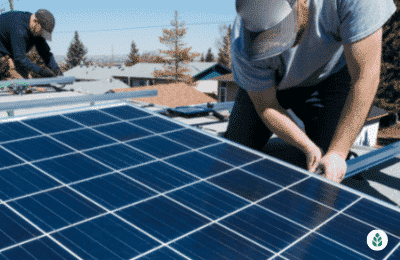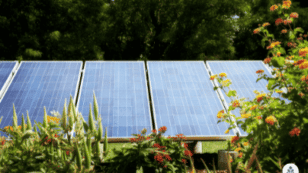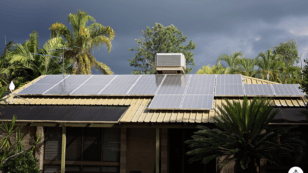
New Hampshire Solar Incentives (Rebates, Tax Credits & More in 2024)
In this guide to saving money on solar conversion using incentives in New Hampshire, you’ll learn:
- What solar benefit programs are available in New Hampshire?
- How do the solar incentives and rebates in New Hampshire affect the cost of solar panels in the area?
- How do you claim the federal solar investment tax credit in New Hampshire to ensure you see the maximum value?
Each product and or company featured here has been independently selected by the writer. You can learn more about our review methodology here. If you make a purchase using the links included, we may earn commission.
Do New Hampshire Solar Incentives Make It Affordable for Homeowners to Go Solar?
Most New Hampshirites pay around $24,505 to convert to solar power, which is based on the above-average local cost of solar equipment — around $3.77 per watt — and the below-average solar array size needed in the area — around 6.5 kilowatts (kW).
While this total cost is about $5,500 below the national average, it’s still too expensive for many residents to justify. Thankfully, the solar perks offered by the state and local utilities help bring down the average solar conversion cost in NH by thousands of dollars, making adopting clean electricity far more accessible.
The state’s Renewable Portfolio Standard for clean energy sources requires 25.2% or the state’s electricity to be produced from renewable sources and includes a carve-out for solar.1 This is one reason the state has more solar benefit programs than others, and these perks help make adopting solar more affordable.

All Energy Solar
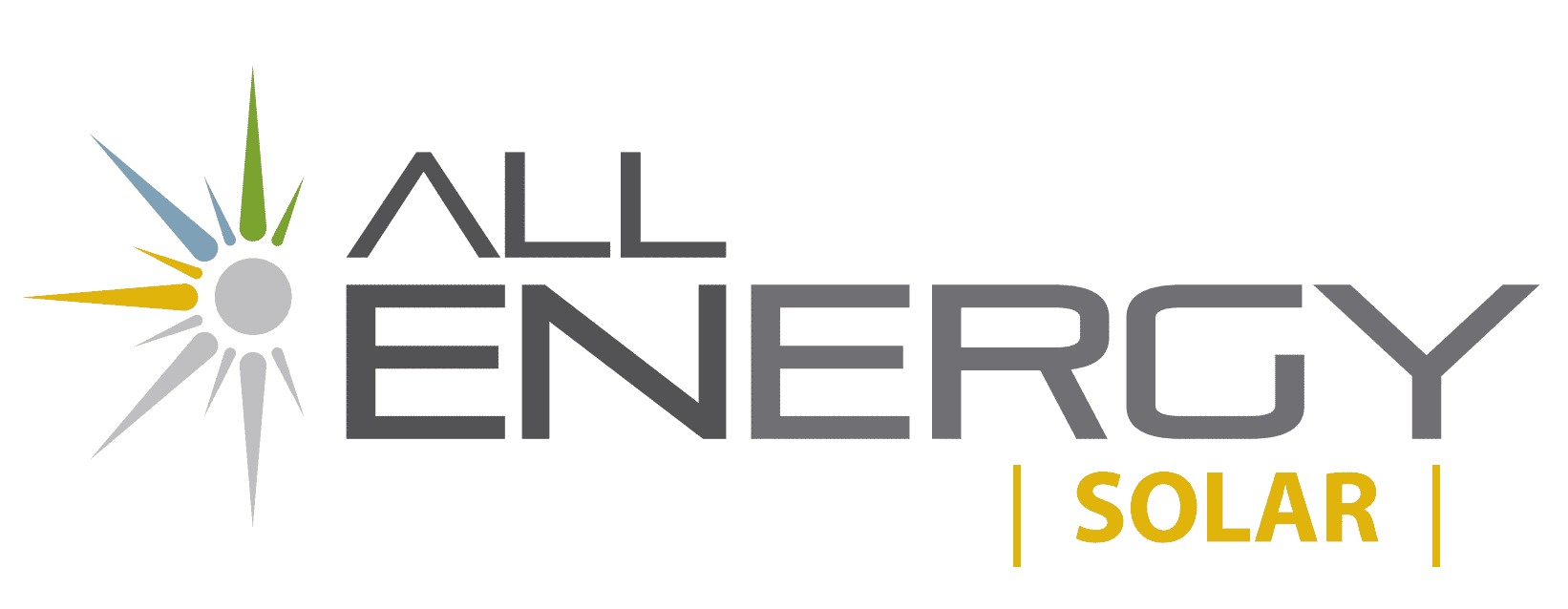
Regional Service
Average cost
Pros
- Full-service home energy solutions
- Excellent reputation
- NABCEP-certified technicians
Cons
- Expensive

ReVision Energy
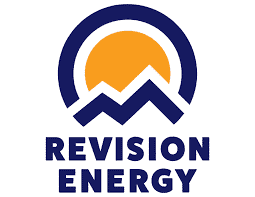
Regional Service
Average cost
Pros
- Comprehensive service offerings
- Certified B Corp
- Many years of experience
Cons
- Relatively short workmanship warranty
- No leases or PPAs

New England Clean Energy

Regional Service
Average cost
Pros
- Many financing options
- Competitive pricing
- Great warranty coverage
Cons
- Limited brands of solar equipment available
- Slightly limited service offerings
In the table below, we’ll include a quick list of all of the solar perks currently accessible to New Hampshirites, along with an estimated dollar amount that each will help you save.
| Solar Benefit Programs in New Hampshire | Benefit Type | Description | Occurrence | Estimated Dollar Amount You Can Receive |
| Federal Solar Investment Tax Credit (ITC) | Federal | Provides a credit to your income tax burden for 30% of your solar panel system installation cost, and credit can be carried over for up to five years | One-time: Gets applied once when you file your taxes after installation, but any unused credit can be rolled over for five years | $7,352 on average in New Hampshire |
| Residential Renewable Electrical Generation Rebate Program | State | Offers rebates for solar equipment on a per-kilowatt basis | One-time: Gets applied once when you pay for your solar project and are approved for any available rebate funds | $1,000 on average in the State of New Hampshire |
| Property Tax Exemption for Renewable Energy and Electrical Energy Storage | Local | Exempts the value added to your home by your system for taxation purposes | Ongoing: This perk is enjoyed every year that your property taxes are assessed while your system remains on your roof | Varies based on the system size and value |
| Net Metering | Local | Allows you to earn credits for excess energy production, which you can use to pay down future bills | Ongoing: Net energy metering credits will accrue indefinitely while your system is producing | Varies based on your energy bills, your system size, your utility company and more |
| Local Benefit Programs | Local | Rebates and other perks to make solar conversion more affordable and appealing | Varies based on the specific perk | Varies based on the program, the size of your system, the cost of your equipment and more |
What Do New Hampshirites Need to Know About the Federal Solar Tax Credit?
The federal tax credit was initially offered in 2005 and was set to terminate in 2024. It started at 30% and had step-down values that would decrease the credit to 26% in 2022 and 22% in 2023. The credit was set to expire in 2024.
In August of 2022, however, the federal government signed the Inflation Reduction Act (IRA), which extended the credit and bumped the amount up from 26% to 30%. That retroactively included all installations that occurred prior to August 2022. The new legislation also pushed the credit expiration date back a decade.
The new rate schedule for the federal credit is as follows:
- 30% credit for solar energy systems installed between 2022 and 2032
- 26% credit for systems installed in 2033
- 22% credit for systems installed in 2034
- The credit will no longer be available for installations starting in 2035 unless it is renewed again
The federal credit isn’t a rebate but rather a tax credit for 30% of your system installation costs. That means an average of $7,352 — at least for the average 6.5 kW system installation in your area — will get credited to your income tax liability for the year you install your photovoltaic (PV) system.
It’s important to note that this isn’t a rebate but rather a tax credit, so it’s not guaranteed that you’ll benefit from it. For example, if you owe $3,000 in taxes come April, your total will be reduced to $0 because of the credit. If you owe nothing in taxes, you won’t see any upside. However, you don’t need to take the credit all at once. If you don’t owe enough money on your taxes the year you install your equipment to take the full credit, then you can roll over any unused credit for up to five years.
How to Claim the Federal ITC in New Hampshire
Claiming the federal credit is a simple process and takes minimal time for a massive payout. You can follow the steps below to make sure you get the full credit value.
- Step 1: Print out IRS form 5695, which is the form to file for clean energy credits. You can fill out the form in advance or when you’re ready to file your taxes.
- Step 2: Complete the form with information about your system, the address where it was installed and contact information for your installation company.
- Step 3: File the IRS form along with your taxes, or have your accountant submit the form for you.
Alternatively, you can follow on-screen prompts for energy efficiency home improvements and solar installations if you use software like TurboTax to handle your tax filing.
EcoWatch’s Opinion on the Federal ITC in New Hampshire
In our opinion, the federal credit is the best solar benefit program available in your area and provides the best return on your time investment. Provided you have the information handy, you should spend no more than a minute or two filling out the IRS paperwork. Despite the minimal effort you’ll put in, you should see an average potential savings of over $7,300.
It’s important to note that you might not be eligible for the entire credit. Since this is a tax credit and not a rebate, you can only realize the potential savings if you owe money on your income taxes.
You’ll need to owe $7,352 the first year for immediate savings on your taxes or at least $1,470 per year for five years to take the full credit over time.
We should also mention that this credit applies to all solar equipment, including solar batteries. New Hampshire currently has net metering, which means, in our opinion, that batteries are more of a luxury than a necessity. Net metering policies across the country are in decline, though, most notably in California where the credit rate dropped by around 75% with NEM 3.0.
If net metering also declines or goes away in New Hampshire, solar batteries will be all but necessary, especially if you want to see anywhere near the current average solar savings of $57,051. Solar batteries add between $10,000 and $20,000 to your installation costs. If you install batteries as well as panels, the average ITC will be between $3,300 and $6,600 higher than the current average, bringing the total credit amount to between $10,600 and $13,900.
Watch Below: How Much Does It Cost to Go Solar in New Hampshire?
What You Need to Know About the Residential Renewable Electrical Generation Rebate
New Hampshire’s Residential Renewable Electrical Generation Rebate program is the state’s local solar rebate option. It provides cash-back perks of $0.20 per watt ($200 per kW) installed. You can get a total rebate of up to $1,000 or 30% of your entire system costs, whichever is lower.
For most residents, the average cost of a PV system is around $24,505, which means 30% of the system value would be over $7,300 and far too high for the rebate maximum. The typical 6.5 kW system would yield over $1,200 at $200 per kW, which would still be too high for the limits, so most residents would see a rebate of the full $1,000 allowed by the program.
Unlike the federal credit, this is an actual rebate and provides guaranteed savings, assuming you file for the perk and funding for the program is available at the time.
How to Claim the Solar Rebate in New Hampshire
In New Hampshire, electricity providers who can’t purchase enough renewable energy or who can’t get it at a reasonable price are allowed to meet their RPS requirement by making payments to the state’s Renewable Energy Fund, which is used in part to fund the solar rebate program. The program is administered on a year-to-year basis and the total amount of rebate funds available depends on how much electric providers have needed to pay into it.
You must apply for rebate funds each year at the time designated by the NH Department of Energy. Applications for 2024 funds, for example, were accepted between September 13 and October 13, 2024, and these funds have now all been allocated to applicants.
As outlined here, there is three-step process for applying for rebate funds:
Step 1: Register as a vendor with the State of New Hampshire
Step 2: Complete an Incentive Pre-Approval Application
Step 3: Complete a Final Incentive Request
We recommend getting in touch with the New Hampshire Department of Energy to find out more about the application process and timeframes for future allocations of rebate program funds.
EcoWatch’s Opinion on New Hampshire’s Solar Rebate Program
This program offered by the DOE is a good perk to have access to, as it provides a potential $1,000 cashback benefit. This helps make solar energy systems more viable and accessible overall, and it reduces the upfront financial burden of installing PV equipment.
Unfortunately, the funds and timeframes for the program are constrained, and you may not get a rebate timely in terms of when your solar installation is completed — or you may not get a rebate at all. This is a pretty significant drawback of the program, but the value of the rebate — if you can get it — is still well worth the time and energy you’ll spend applying.
With this perk and the ITC, you can bring down your effective installation costs from an average of $24,505 to just over $16,000. With average lifetime savings of over $57,000 from going solar, that’s a reasonably affordable investment.
What You Should Know About the Property Tax Exemption for Solar Systems in New Hampshire
An exemption for property taxes prevents your property taxes from increasing as a result of solar adoption. Normally, any home improvement that raises the value of your home will also drive up your taxes, but this exemption prevents that from happening when you install a home solar energy system.
While New Hampshire does not have a statewide exemption for solar equipment installed on your home, state law does allow municipalities to apply for these exemptions. As of 2024, hundreds of NH local governments have adopted the exemption policy.2
The property tax exemption is a crucial perk for limiting the burden of converting to solar, which is expected to boost your home value by around 4.1%.3
The exact amount you’ll save with this benefit program depends on your system value and your local taxation rate. Given the average system value in your area of $24,505 and the state property tax rate of 1.77%, this perk provides an average savings of around $433 per year.4
Over the 20 years your system is expected to last, that’s a maximum savings of around $8,674 on your tax bills. The actual savings will be lower because your system depreciates over time, but this should give you an idea of the general value of this perk.
How to Claim the Exemption for Property Taxes in New Hampshire
To find out if your local jurisdiction has adopted the solar property tax exemption and if your home qualifies for it, contact your local jurisdiction. If it does, you must complete the State of New Hampshire Permanent Application for Property Tax Credits/Exemptions and file it with your municipality.
EcoWatch’s Opinion on the Exemption for Property Taxes in New Hampshire
The tax exemption is a great perk to have in place to minimize the financial burden of converting to solar energy. If your jurisdiction has adopted the exemption, it can represent a maximum value of over $8,600, based on the current property tax rate of 1.77%.
This perk is especially beneficial because it’s applied automatically. It helps avoid paying more after going solar, and you don’t have to file any paperwork or apply for the program to take advantage.
What You Need to Know About Net Metering in New Hampshire
Net energy metering — or just NEM — is a billing policy mandated by the New Hampshire Public Utilities Commission (PUC) for most major utility companies, including:
- Eversource
- Liberty Utilities
- New Hampshire Electric Cooperative
- Unitil
The policy guarantees that you’re credited for the excess energy your panels generate that you don’t use and instead send to the power grid. The credits you accrue can be called on at a later date to avoid paying the retail rate for electricity, which is outstanding in New England, given the well-above-average electricity rates and energy costs.5
Since this perk is so beneficial for systems that overproduce power, it’s worth mentioning that you may want to consider panels with a lengthy efficiency warranty to take full advantage.
The specific credit rate you get depends on your utility company. Eversource has the best NEM policy, with no limit to how long your credits can roll over and a high cap of 600 kilowatt-hours (kWh) that can roll over per month.6 The net metering program is open to residential systems up to a megawatt, which includes virtually all systems.
New Hampshire recently moved from its net energy metering 1.0 program to NEM 2.0, which is slightly less beneficial. The new net energy metering policy includes non-bypassable charges that make the credit rate drop below the retail rate for energy.7 The 3.0 program is currently in development as well and is expected to make net energy metering even less beneficial.
Unfortunately, this seems to be the trend across the country. Many states are seeing net energy metering programs becoming less beneficial with lower credit rates, and some are seeing the policy disappear altogether. California recently rolled out NEM 3.0, which was a massive hit to solar savings in the area. Over time, we expect to see more states lowering rate and even abandoning the perk altogether.
If that happens in New Hampshire, you’ll likely need to invest in solar batteries alongside your panels to make your system financially worthwhile. Batteries add between $10,000 and $20,000 to your installation costs, but you stand to save far more on electric bills with them if NEM is discontinued in New Hampshire.
How to Enroll in Net Energy Metering in New Hampshire
Net energy metering requires an application, although most homeowners who choose reputable solar installers in NH won’t need to file the application themselves. Below is a quick look at the typical process for taking advantage of net energy metering in your area.
- Step 1: Get a free quote for your installation from a reliable and experienced installer in your area. Confirm with the representative with whom you speak that they will complete the net energy metering process for you.
- Step 2: Proceed with the solar power system installation.
- Step 3: We recommend monitoring your electric bills for a month or two after installation to make sure you’re receiving credits. If you aren’t, reach out to your installer to confirm that the application for interconnection and net energy metering was filed.
EcoWatch’s Opinion on Net Energy Metering in New Hampshire
NEM is an outstanding solar perk to have access to, and, historically, it has been one of the most crucial for making solar a viable option in the U.S. This program helps maximize energy savings by minimizing how much of the energy you use you need to pay for, which is especially helpful in New England given the unusually high energy prices.
Net energy metering improves your chances of eliminating your energy bill, which means you can reduce your panel payback period and maximize your long-term savings. Using this perk along with the solar tax credit, the average New Hampshirite will pay for their entire system cost and then save an additional $57,051 over 25 years. The actual savings are likely to be much higher, too, as electricity rates have been rising and are expected to continue to go up. The higher electricity rates rise, the more you save by going solar and taking advantage of net metering, which effectively provides you with free electricity.
Net energy metering is especially useful in your area because most reputable solar installers will complete the application process for you, saving you time and still giving you access to the program’s massive upside.
Local Solar Incentives in New Hampshire
New Hampshire has a decent number of state benefit programs available to keep solar accessible and affordable, but there are also some local perks that can make your system even more valuable. We’ll include a quick description of each below.
- Eversource ConnectedSolutions Program: Customers of this utility company that install a solar battery alongside their panels can opt to let the utility provider use stored energy during times of high demand. You can get a rebate of around $230 per kWh installed, with an average cashback perk of around $3,000.8 Funds are limited for this program. As of November 2024, the remaining funds were down to $750,000, so they will likely run out in the coming years.
- Property-Assessed Clean Energy (PACE) Financing: PACE financing provides low-down-payment and low-interest solar loans to low-income households to make solar conversion more accessible. Unfortunately, these loans are only available for industrial and commercial solar and non-profits, as well as multi-family residential properties in your area at this time.
Which Tax Incentives Are The Best In New Hampshire?
We’ve discussed all of the solar benefit programs in your area above, but not all of these are as valuable as the others. Below, we’ll list what we believe are the most beneficial perks that you shouldn’t miss out on.
The Federal Solar Tax Credit
If we had to recommend just one solar perk in your area, it would be the federal credit. This program is available to all residents and provides an average value of over $7,300. Not only is the value high, but the amount of time and energy you’ll spend applying for this credit is minimal and absolutely worthwhile.
Net Energy Metering
Net energy metering is an outstanding solar perk and one we strongly recommend to all residents of The Granite State. For most solar customers who choose a reputable solar installation company, this perk will be essentially automatic.
Not only does it take most customers no effort to apply, but it also maximizes your long-term savings and prevents you from paying the above-average electricity prices in your area. It takes more time than the federal credit to realize fully, but the value is unmatched in the state.
Just keep in mind that this perk is likely on its way out. We expect the credit rate to dip again in the coming years, and eventually, it will probably be phased out entirely. Since it’s currently available, now is a great time to go solar to guarantee the current perk and get grandfathered in to the higher credit rate.
The Residential Small Renewable Energy Rebate
Finally, we recommend filing for the state rebate when it becomes available again. This provides an average value of $1,000, and although the application process is a bit complex, we still think it’s a great way to potentially save money during the conversion process.
The only real downside to this perk is that the applications are limited, so you will have to keep checking back for availability.
What’s The Near-Term Outlook For More Incentives In New Hampshire?
There are currently no plans in place for new benefit programs to become available or for existing ones to increase in value in your area. The state is working on rolling out net metering 3.0, which would reduce the credit rate for exported electricity. However, there is no specific date when this is expected to happen.
The cost information presented in this article is derived from a comprehensive analysis, incorporating data from multiple industry sources. The average cost per watt per state was calculated based on figures from Consumer Affairs, Energy Sage, and Berkeley Lab’s Electricity Markets & Policy Department. Additionally, monthly energy consumption and the average monthly cost of electricity were sourced from the U.S. Energy Information Administration, ensuring a well-rounded and accurate representation of the information presented.
FAQ
In the sections below, we’ll answer some of the questions we see most often from New Hampshire residents looking to make solar more affordable with benefit programs and rebates.
The Inflation Reduction Act (IRA) made the federal credit more appealing and added more attractive credits for electric vehicles (EVs).
First, and most importantly for most solar customers, it extended the federal credit by a decade and increased the credit rate from 26% — where it sat in 2022 before the IRA — back up to 30%.
Second, it increased the tax credits available for some makes and models of EVs. The new maximum credit is $7,500.
Net metering in The Granite State is currently under review and is expected to get less beneficial in the coming years. The state has already dropped the effective credit rate with its net energy metering 2.0 program, and the 3.0 program is likely to cause the rate to drop further.
Net energy metering terms are becoming less favorable in many states across the U.S., and that trend is expected to continue, including in NH.
There is no legislation in the works that would make solar perks more appealing in your area in the next two years. However, it’s probable that applications for the state energy rebate will open again in 2023, which could provide an average value of $1,000 for solar customers.
SRECs — Solar Renewable Energy Certificates, also just called RECs — are credits you earn for producing power with your PV panels. The credits can be sold on an open SREC market for a profit to help offset the costs of solar conversion. Unfortunately, there is no SREC market in New Hampshire, nor are there any current plans to create one.
Top Solar Installers in New Hampshire Cities
Comparing authorized solar partners
-
- Full-service home energy solutions
- Excellent reputation
- NABCEP-certified technicians
- Expensive
A+Outstanding Regional Installer
Having trouble deciding? Click below and use our process to receive multiple quotes instead:

 233k
233k  41k
41k  Subscribe
Subscribe 
